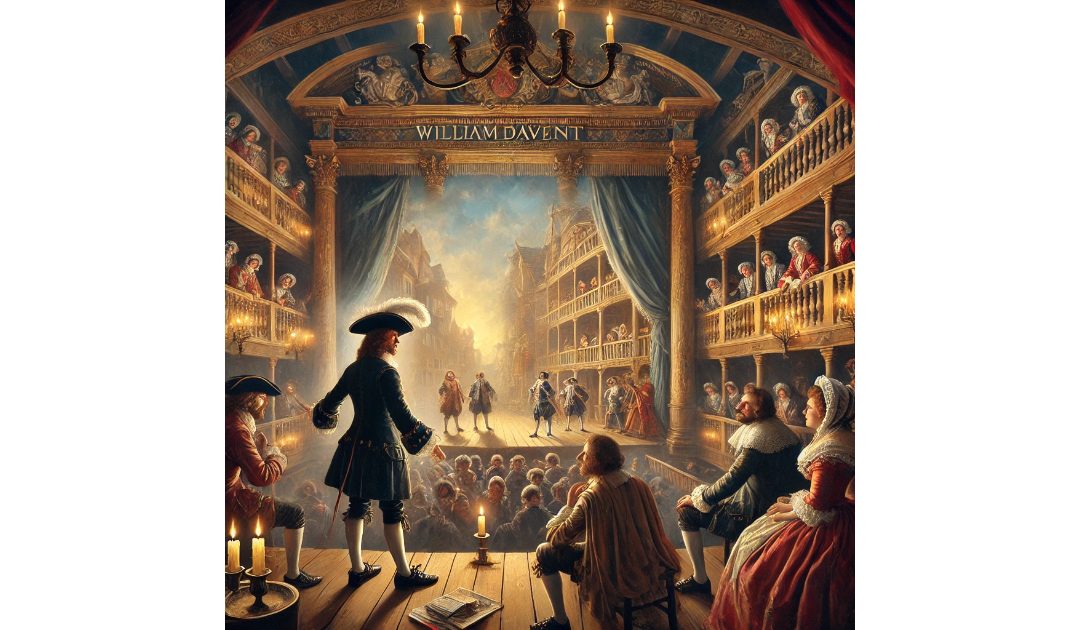On 10th February 1635 William Davenant’s play, “The Temple of Love”, was performed at Whitehall featuring Queen Henrietta Maria. Sir William Davenant was an English poet, playwright, and theatrical figure, best known for his role in the development of English drama during the 17th century. His career spanned the late Elizabethan and early Restoration periods, and he played a crucial part in reviving English theatre after the Puritan ban.
Born in Oxford in 1606, Davenant was the son of a tavern keeper. A long-standing rumour suggested he was the illegitimate son of William Shakespeare, a claim he reportedly encouraged but which remains unverified. Despite this, his literary talents gained him favor at court, and he became a protégé of influential figures, including Fulke Greville.
Davenant’s early works were well-received, and he became associated with the court of King Charles I. His first plays, such as “The Cruel Brother” (1627) and “The Wits” (1634), showcased his talent for tragicomedy and wit. By 1638, he had been appointed Poet Laureate, succeeding Ben Jonson.
However, during the English Civil War (1642 – 1651), Davenant supported the Royalist cause. He served as an officer for Charles I and later attempted to aid the exiled Charles II. In 1650, while en route to America to establish a Royalist colony, he was captured by Parliamentarian forces and imprisoned in the Tower of London. He was later released, possibly due to the intervention of influential figures like John Milton, his former literary rival.
After the Restoration of Charles II in 1660, Davenant played a key role in reviving English theatre, which had been suppressed under the Puritan regime. He secured a royal patent to operate a theater company, the Duke’s Company, in competition with Thomas Killigrew’s King’s Company.
Davenant introduced several innovations that transformed English drama, including:
- The use of moveable scenery and painted backdrops
- The introduction of women actors on stage (replacing male actors in female roles)
- The incorporation of French and Italian theatrical influences, particularly in spectacle and staging
His most famous works from this period include “The Siege of Rhodes” (1656), considered the first English opera, and his adaptations of Shakespeare, which modified original texts to suit Restoration tastes.
Davenant died in 1668 and was buried in Westminster Abbey. While often overshadowed by contemporaries like John Dryden, his contributions to English theatre were significant, particularly in shaping the Restoration stage and helping to revive dramatic arts after years of Puritan repression. His influence on opera, stagecraft, and theatrical production left a lasting mark on English drama.

